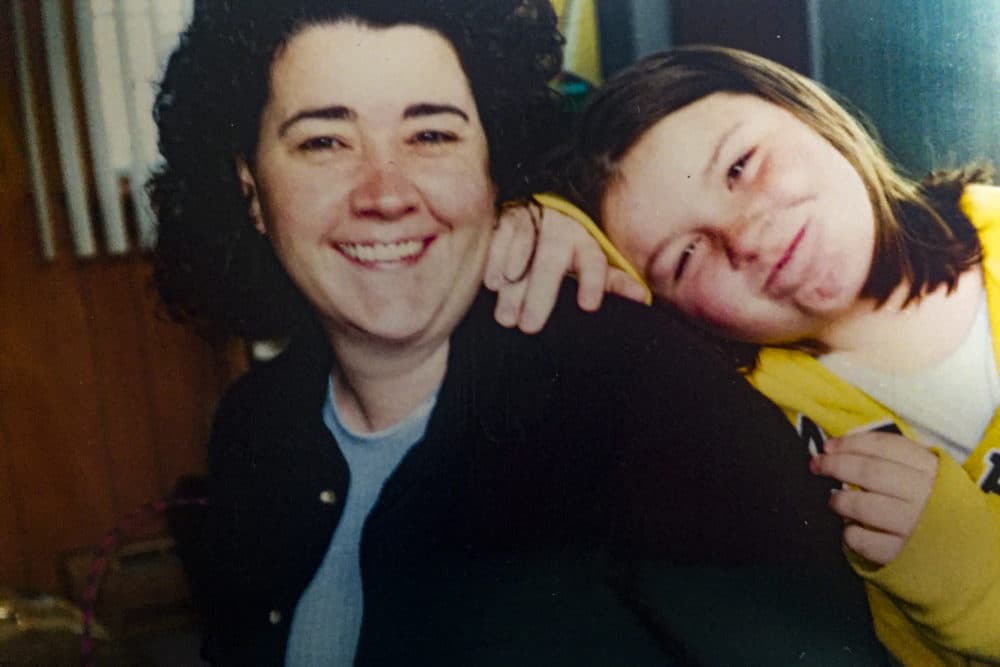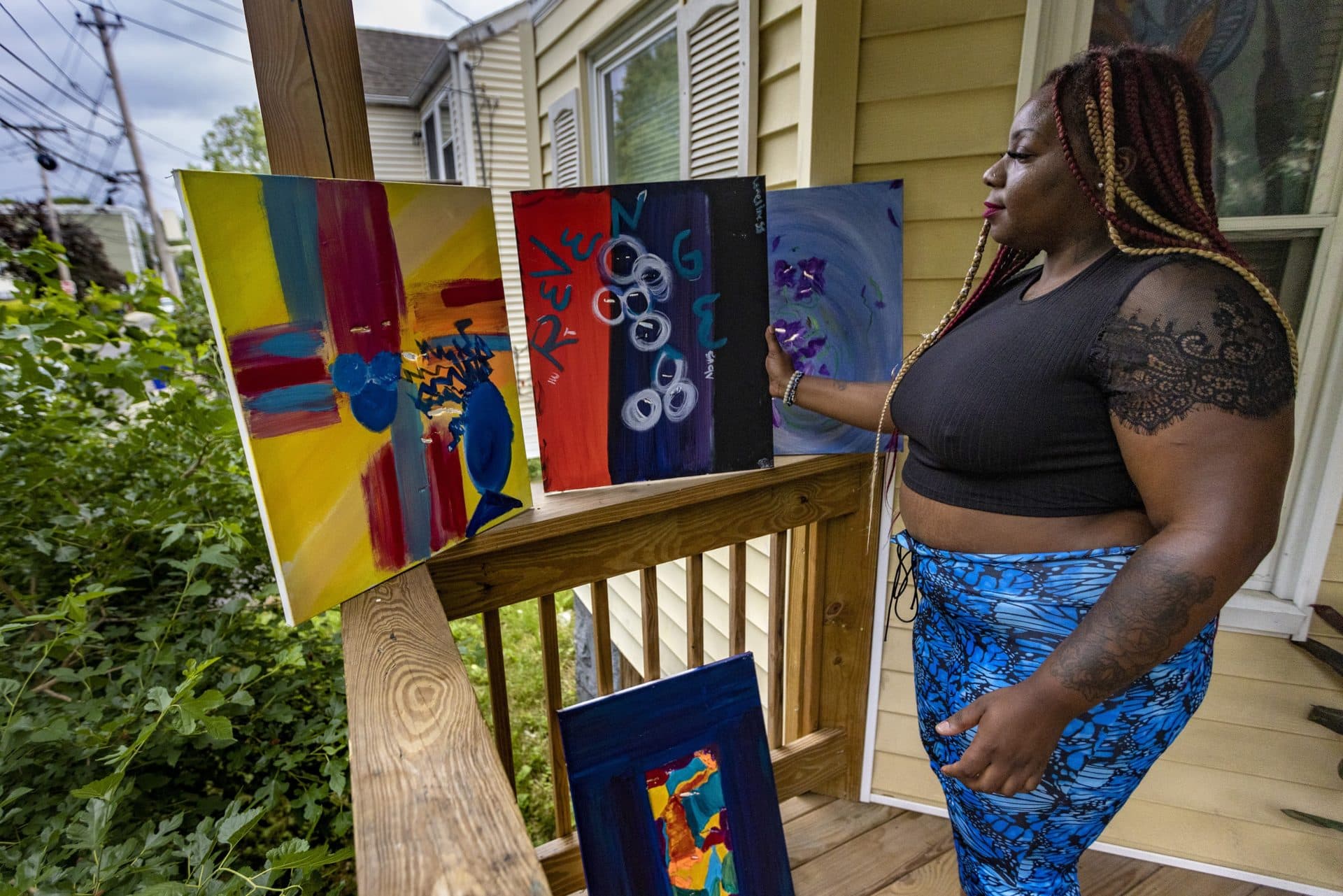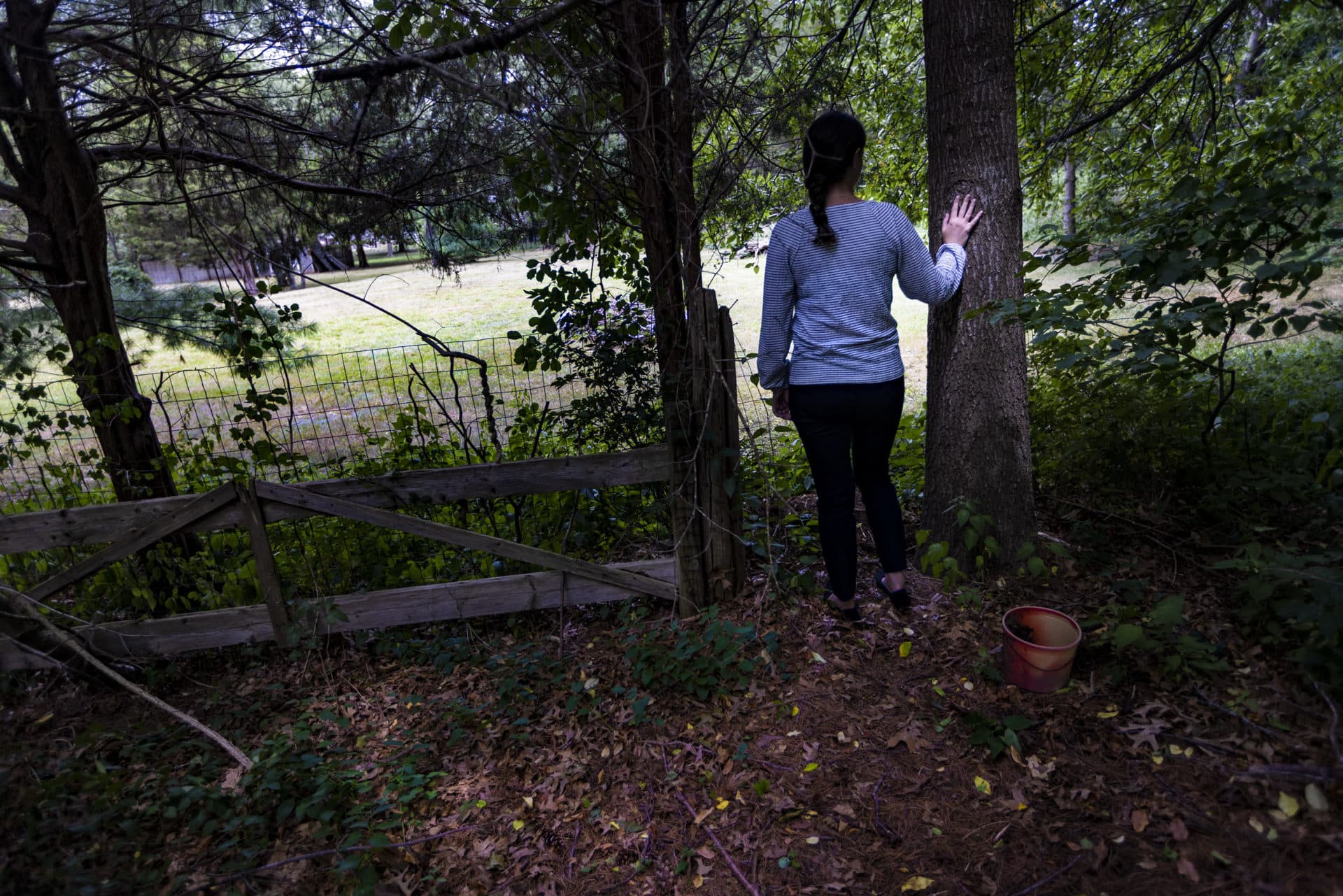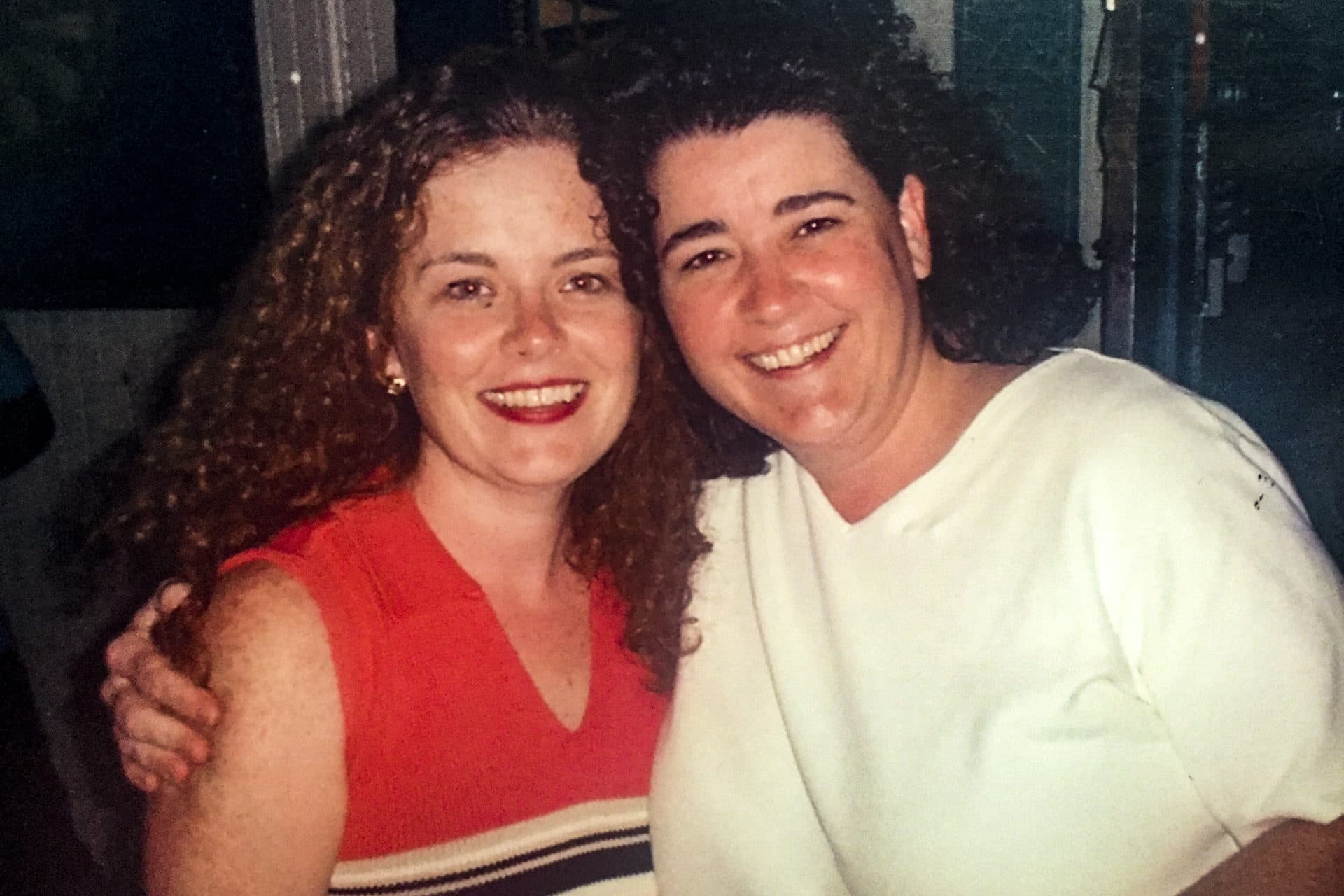How a Mass. law intended to protect victims became a 'gift to abusers'
Groton police found the body of Mary Fairbairn, 57, lying in bed in a pool of blood. An autopsy showed she had been stabbed 27 times. Her husband immediately confessed.
“I killed my wife,” Gregory Fairbairn allegedly told police when they arrived on Oct. 19, 2019. “Just put a bullet in me.”
Though prosecutors quickly provided details about the murder, police used a sweeping confidentiality law to prevent the public from learning crucial details about what they did — and didn’t do — in the months that led up to the stabbing.

They had been warned repeatedly that Mary’s husband threatened her, a family member said, but did little to intervene. Indeed, police were called twice to the couple’s home in the week before the stabbing over concerns about Mary’s well-being. In both cases, police declined to make an arrest, then kept the reports locked away.
“They didn’t kill her, but they were negligent in every step of the way in protecting Mary,” said Fairbairn’s sister, Ann Donahue, one of the people who called police in the days before Mary was killed.
A WBUR investigation found that this state’s uniquely broad privacy law, intended to protect the privacy and safety of victims of domestic and sexual violence, has instead protected perpetrators and police. The Massachusetts law requires police to keep all reports and arrests related to sexual and domestic violence secret, something no other state does.
In fact, 16 police departments turned down WBUR’s request for records detailing their actions leading up to domestic murders, all citing the same statute.
It has also harmed victims by making it difficult — even impossible — to obtain records they need for custody battles and restraining orders.
David Adams, who runs a Malden-based program that seeks to rehabilitate domestic abusers, called the law “a real gift to abusers.”
“Domestic violence really thrives on secrecy and silence,” said Adams, co-director of Emerge.
Other states require police to redact the names of victims to protect their privacy, but the Massachusetts law goes much further.
"Domestic violence really thrives on secrecy and silence."
The initial version, passed in 1974, made all reports of rapes and sexual assault confidential, but made no mention of domestic assault cases. Over the years, that would change.
In 2013, Jared Remy — the son of famed Red Sox second baseman and broadcaster Jerry Remy — murdered his girlfriend, bringing new calls for reform. Records showed Jared Remy had a history of domestic violence, but avoided jail time again and again.

In response, lawmakers quickly passed a massive package designed to crack down on domestic abusers.
The final version of the law included a controversial measure that had failed for seven years to pass. It made all records of domestic violence secret in Massachusetts, just like reports of sexual violence. Sponsors said they hoped the change would encourage more victims to contact police by guaranteeing they would not be publicly identified.
But even supporters of that provision now acknowledge they have no evidence that actually happened. Overall, the number of reports of domestic violence remained virtually unchanged after the law went into effect in 2014, according to data from more than a dozen of the largest police departments in the state.
Advocates said there are good reasons why the confidentiality law failed to accomplish its goal. Many victims are unaware of the statute, don’t think it will help, or aren’t thinking about the law at all in a time of crisis.
At the same time, advocates have become increasingly worried about the downsides of making all reports and arrests confidential.
Jamie Sabino, staff attorney at the Massachusetts Law Reform Institute, said she was concerned about potential “unintended consequences” even as she helped advise lawmakers on the language in the 2014 bill.
Immediately after the law passed, police in Waltham locked away records on Jared Remy’s long history of domestic violence, making it harder to review whether enough was done to hold him accountable before he murdered his partner, Jennifer Martel.

Kimberly Yox, a lawyer who represents survivors of domestic violence, said it’s ironic that Remy’s police records are now secret, since what was publicly reported about those records helped spur lawmakers to take action against domestic violence.
“Without that detailed coverage of Jennifer Martel’s case and the prior survivors of domestic violence who had been victimized by Jared Remy, we wouldn’t, I don’t think, have this law,” said Yox, an attorney with the Justice Center of Southeast Massachusetts.
Having these records helps us understand the nuances of domestic violence and the system’s response, Yox said.
Instead, the legislature gave police departments an easy way to avoid scrutiny. More than a dozen other Massachusetts police departments with at least one domestic violence homicide in the last few years refused to provide WBUR records of previous domestic violence calls before the killing.
“Using this law to hide how the system responded is not serving anyone,” said Laura Van Zandt, executive director of REACH Beyond Domestic Violence, a regional domestic violence organization focused on prevention and intervention.
Many departments have also used the law to withhold information about unsolved sexual assaults, making it hard to know if they missed crucial opportunities to catch suspects, putting the public at risk.
"Using this law to hide how the system responded is not serving anyone."
Quincy and Framingham police said they each recorded three cases of unsolved stranger rapes in recent years. But they refused to provide any details of the crimes, and neither department spokesperson recalled alerting the public. It’s not clear in any of the cases if the assaults were committed by different people or serial rapists who are still on the loose.
Police have also repeatedly used the law to hide misconduct by their own officers.
More than 40 departments across the state rejected requests from WBUR for records of officers accused of rape, molesting children or other incidents involving sexual or domestic violence. That includes police in Belmont, Fitchburg, Weymouth, New Bedford and Taunton.
Some, including Boston and Methuen, wouldn’t even release the names of officers accused of sexual or domestic violence, unlike other departments that release the officers’ names, but provide no details of the accusations. North Attleboro agreed to turn over some documents of an officer involved in a domestic disturbance, but they were so heavily redacted it was impossible to tell what happened or how the department investigated the allegations.
In one example, Everett police withheld records about officer Michael Mori, who was charged with beating his pregnant wife in 2016.
The criminal charges were later dropped after his wife refused to testify, but a log of internal investigations shows the department found he violated department rules. Still, the department kept him on the force and locked away its report on the investigation.
Everett Captain Paul Landry said the department is required to keep all records of domestic violence confidential.
Some victims say the law has also made it harder for them to get documents they need, even though the statute contains an explicit exemption providing access to victims and their lawyers.
Consider what happened to Geneva Davis.
Two years ago, a man she had dated held her hostage in her apartment for hours. He smashed up her apartment, forced her to strip, tore out chunks of her hair and beat her.
“Every time I put a piece of clothes on, he’d rip it off,” she recalled.
A neighbor called 911 after hearing the commotion. But the man forced Davis to stay silent when police knocked on the door. And officers left without ever entering the apartment.
“I’m dead,” she thought. “He’s really going to kill me.”
Finally, Davis escaped out the back door and a woman in a nearby car helped her call police. The man was later arrested and sentenced to up to three years in prison.
In the weeks and months after the assault, Davis tried to sort through what happened – with little help from the police.

Over and over, the officers at the police station in Dorchester said they couldn’t give out the records about what happened to her, because they were coded as domestic violence.
She was eventually able to get some reports after finding an attorney with the Northeastern University Domestic Violence Institute. Even then, police insisted some records of the kidnapping were off limits, like the 911 call and report from the neighbor. As a victim, they said, Davis was only allowed to see records on reports she herself made.
A Boston police spokesperson said officers know that victims are entitled to copies of their own reports, but didn’t have enough information to comment about why Davis couldn’t get hers. He reiterated the department’s stance that calls like the neighbor’s are not available to victims.
Davis says people deserve to know these heinous crimes are happening in their community. So she believes the records should be available to anyone.
“Those things should be public records,” she said, “so people can see this is what’s real.”
In other cases, advocates and survivors say, the exception for victims to obtain reports is far too narrow.

A South Shore mother obtained a restraining order against her husband after fleeing their home with their 1-year-old daughter. But she says she ran into problems obtaining records she needed for a custody battle over their child.
She asked for copies of reports showing her estranged husband had abused two other women – both to help corroborate her own account of abuse and to demonstrate it was part of a broader pattern.
But Boston police refused to give her the reports, saying she wasn't the victim in those other cases.
"What I felt when they said no was that they were protecting him over and over and over again."
“What I felt when they said no was that they were protecting him over and over and over again,” she said. (WBUR does not name victims of domestic or sexual violence without their permission, and the South Shore mother said she fears reprisal from her former partner.)
The woman eventually obtained the records through the courts, but only after her ex requested them himself. She’s now pushing for a state law that would allow partners of abusers to access similar reports in the future.
Victims aren’t the only ones who feel harmed by the secrecy law. Somerville officials refused to give a family a report accusing their 6-year-old son of sexual assault. School administrators told the parents someone called police after the first grader allegedly touched a classmate's bum. But the city said the parents weren't entitled to see the report, because of the law.

The law has also stymied journalists and researchers. Boston Police, for instance, withheld response times to domestic violence calls. A Northeastern University professor studying suicides was blocked from obtaining records for people who had been involved in abuse. And another researcher examining domestic violence said she will likely have to exclude Massachusetts from her research because of the state’s sweeping confidentiality law.
Police departments say they have no choice. The law says they can’t release any report of domestic or sexual violence or they will face up to a year in prison or a fine up to $1,000.
Still, prosecutors acknowledged that they have never enforced the law, essentially giving police discretion on when to release records.
Groton police turned down WBUR’s request for reports of domestic violence in the months before Mary Fairbairn was stabbed to death. The department did, however, give some of those same records to her sister, who in turn showed them to WBUR. Groton police declined to explain the discrepancy.
Rachel Wechsler, an associate professor at the University of Missouri School of Law who researches gender-based violence, said police are often selective about what details to release when the law doesn’t require them to release everything.
“They’re going to put up the information that is most favorable to them and makes them look like they’re the most effective,” she said.
That's true across the country, she said. But other states generally take much more targeted approaches to protecting victims' privacy, while still requiring departments to provide some information or documents about incidents involving domestic or sexual violence.
"There is a very clear, unintended consequence of empowering law enforcement ... to really assert increased power and control over access to information and records."
Vermont permits police to black out the names of victims and witnesses. But the laws don't permit police to keep every arrest and report entirely secret.
“So long as the victim’s information is safe, I don’t see any public good coming from withholding the rest of the information,” said Lia Ernst, legal director of the American Civil Liberties Union in Vermont.
Some groups that backed the 2014 measure to expand the Massachusetts confidentiality law, such as Jane Doe Inc., now say they are open to making changes. Hema Sarang-Sieminski, the organization’s policy director, said it’s time for a study or commission to examine the statute.
“While this law was intended to increase survivor safety and protect survivor privacy, there is a very clear, unintended consequence of empowering law enforcement, police departments, to really assert increased power and control over access to information and records,” she said. “I think it’s time to address it.”
Former state Rep. Jon Rotenberg, who sponsored the original legislation that kept rape reports secret in 1974, said he still thinks protections are needed to persuade victims to come forward. But he said it was worth assessing the law’s effectiveness now that so much time has passed.
State Rep. Alice Hanlon Peisch, the Weston lawmaker who sponsored the domestic violence bill passed in 2014, said she’d also be open to discussing changes, such as whether to make records public in cases where people were murdered.
In the meantime, questions linger about Mary Fairbairn’s death.
The courts are still determining whether her husband, Gregory, is mentally fit to stand trial. Even if he is, the trial is likely to focus on the murder rather than the police department’s actions before her death. And Groton Deputy Chief Rachael Bielecki said the department can’t talk about how it handled requests for help before the murder while the case is still pending.

Mary’s sister, Ann Donahue, wonders if anyone will ever look into whether Mary’s life could have been saved. She says she understands the need to keep some records confidential, but thinks families deserve greater access to records and that an independent board should investigate these kinds of deaths.
Donahue says Mary was a wonderful mother who left behind a daughter and many other relatives and friends who miss her.
“Once that person’s gone, there’s no going back and filling in the blanks,” Donahue said. “And it’s like a big hole that it leaves in your heart to not know the events leading up to your loved one’s death.”
Grace Ferguson of WBUR contributed to this report.
If you or someone you know is experiencing domestic violence, you can call SafeLink, Massachusetts' 24/7 domestic violence hotline and resource at 877-785-2020 or visit the group's website.
This segment aired on August 29, 2022.
